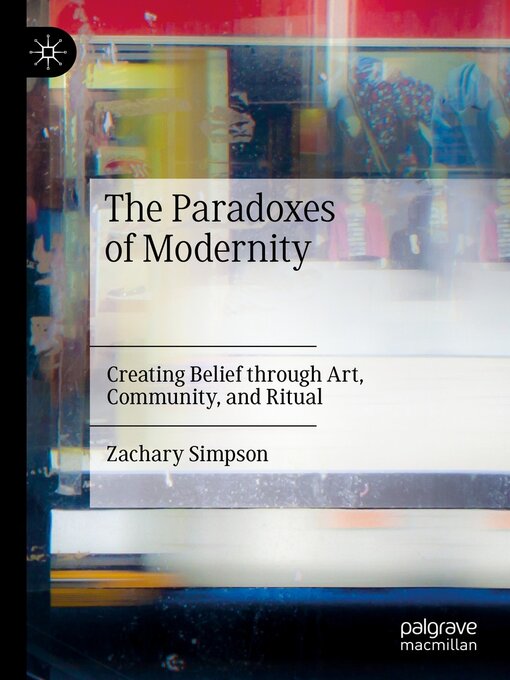How do we live out the values we know to be constructions? This question holds captiveour ability to solve public goods problems and make our lives more meaningful. Instead of seeing this paradox of modernity as self-deception or bad faith, Zachary Simpson employs cognitive and social scientific research to explain how best to realize values that we know to be false: through art, community, and ritual. In Simpson's account, the values we construct must conform to narrative, be reinforced through community, and habituated through ritual. And yet modernity has also undermined collectivity and ritual. Thus arises the second paradox of modernity: the best tools we have for realizing values are those which devalue the individual modern subject.The last part of the book attempts to make three normative points regarding modernity. First, the modern, individualist subject is insufficient to realize the very values and aspirations of modernity. We must recognize that humans are collective and communal. Second, we cannot simply create values – they must arise in communities and be realized through narrative and ritual. And, third, if we are to live meaningful lives as contemporary meta-ethicists and positive psychologists argue, then such lives must include art, community, and ritual as a way to affirm and reinforce one's values.Let's Pretend is a statement about one of the dilemmas of the contemporary western world and how that dilemma is, and might be, resolved. How do we believe in the values that we know will make a better world, even if they are of our own making? We must do so, in part, by becoming less modern, by engaging with one another and imagining more.The book should serve as both an essay in the history of Western thought as well as a constructive argument about the nature of the modern epoch and what resources we have to realize the central aspirations of modernity. It aims to fill a critical lacuna in theoretical and philosophical approaches to modernity. While most texts focus on either the need for created values or the need to remedy modern subjectivity, few, if any, link the two problems together. Moreover, they do not ground their analyses in the social sciences and contemporary findings regarding the efficacy of narrative, communal action, and rituals.The book is unique, then, because it asks a central question – how do we believe in what we know to be false? – and because it answers this question using interdisciplinary methods that allow us to see the faultlines and paradoxes of our age.
-
Creators
-
Publisher
-
Release date
May 10, 2022 -
Formats
-
OverDrive Read
- ISBN: 9783030990565
-
EPUB ebook
- ISBN: 9783030990565
- File size: 460 KB
-
-
Accessibility
No publisher statement provided -
Languages
- English
Why is availability limited?
×Availability can change throughout the month based on the library's budget. You can still place a hold on the title, and your hold will be automatically filled as soon as the title is available again.
The Kindle Book format for this title is not supported on:
×Read-along ebook
×The OverDrive Read format of this ebook has professional narration that plays while you read in your browser. Learn more here.
